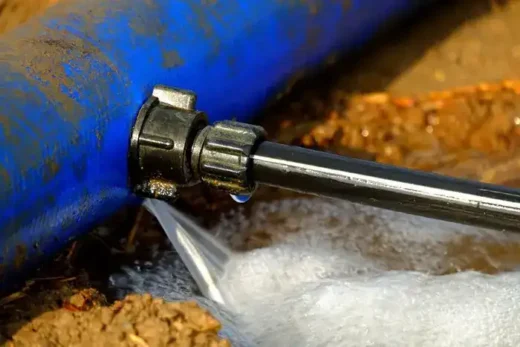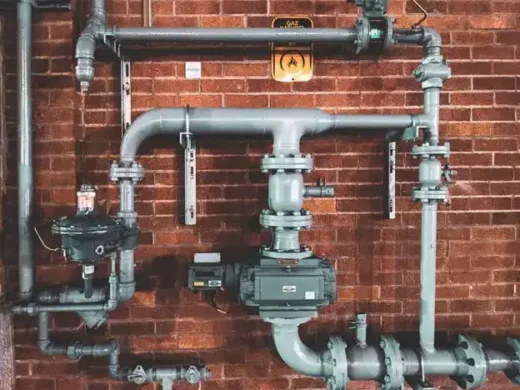6 ways to detect water leak in your home guide, Online property advice, House plumbing tips
6 Ways to Detect Water Leak in Your Home
post updated 24 April 2025
Water is one of the most vital elements for human survival. However, it’s also very expensive to your monthly budget if you waste it without knowing. Fortunately, there are several things that you can do yourself to detect leaks at home before they get out of hand. If you notice any leaking in your home, immediately contact a professional plumber to handle the problem.
Sep 30, 2021
6 Ways to Detect Water Leak in Your Home Help Guide
- Examine Your Water Bill
Water leaks can cause significant damage to your home, and it is best to detect them as soon as possible. The easiest way to do so is by checking your water bills, which should always be on top of your priority list. If you see a sudden jump in the bill amount within the past month or so, then chances are that there is a leakage somewhere around your house.
- Inspect Your Pipes
Another thing that you can do to detect leaks within your home is by checking pipes all around the house for leaking sounds. Sometimes plumbing fixtures make hissing noises if they are not properly sealed off. You can also trace the exit path of water (usually the pipe exit point) and check it out for any signs of seepage, like wet cracks on surfaces near it. In this process, you might find it useful to employ a smart home water monitoring system like bluebot to help detect leaks, monitor water usage and provide other insights about your home’s water system.
Use a flashlight to check if there are wet or dry locations on the pipe exit because sometimes leaks can be hard to spot. You can also use your hand to feel for any changes in air temperature near the pipe exit that may indicate the presence of water nearby.
If this work seems too much for you, you can always get the help of a plumbing maintenance expert.
- Inspect Your Floor
If the floor under your home gives signs of wetness or humidity, this might mean a water leak is present somewhere in your pipelines. Even if you can’t find any visible sources of leakage, try using a moisture meter to scan the ground for hidden water leaks. This method will be very efficient, especially when dealing with older homes where drainage systems are not properly insulated from severe weather conditions.
- Listen For Faucet Drips
Another way to detect a water leak in your home is by checking how many drips per minute you hear coming from running faucets inside your house. To do this, turn on any faucet inside the house with running water and wait for probably one minute before checking if you can still hear dripping sounds.
If you only hear the sound of water dropping once every minute, then there’s no need to worry. However, if you notice multiple drops per second, this could be a sign that something is wrong with plumbing fixtures like leaky valves that need immediate attention. You can check shower heads and bathroom sink plug holes for drips too.
- Listen for Gurgling Noises
Maybe the noise just started, and you’re not sure what’s happening? Louder than normal gurgling noises can mean there is air/vacuum popping into your system due to some sort of breakage. That breakage could be a crack, a loose connection, rusting, etc., but whatever it is, any sort of air/vacuum popping into your system can cause a gurgling noise.
- Use Your Intuition
Even though this method might not always help, it’s still worth giving it a try if all other methods fail to detect water leaks. If you feel like something is wrong with your home infrastructure, start looking for filtrations or others kinds of damages around your house. You might even start smelling some kind of mold growth before noticing visible damages. That’s why checking your intuition isn’t such a bad idea after all!
Regular Plumbing Inspections for Your Property
One more thing that ought to be mentioned is that it’s vital to conduct regular plumbing inspections and check possible signs of corrosion, deposits, and other issues which might indicate leakage. Even if you detect the source of water leak immediately after it happens, this may not make much difference if your home infrastructure is already severely damaged! That’s why prevention is definitely better than cure.
The sooner you catch a water leak, the less money you will spend on repairs. That’s exactly why every homeowner out there should master these leak detection methods. Good luck staying away from any further damage caused by water leaks!
Comments on this guide to 6 ways to detect water leak in your home article are welcome.
Home Plumbers
Property Plumbers Posts
How plumbing factors into your new home build
Plumbing Issues That Most People Face
How to Handle a Plumbing Crisis
Building Design
Residential Architecture Articles
Comments / photos for the 6 ways to detect water leak in your home guide page welcome






